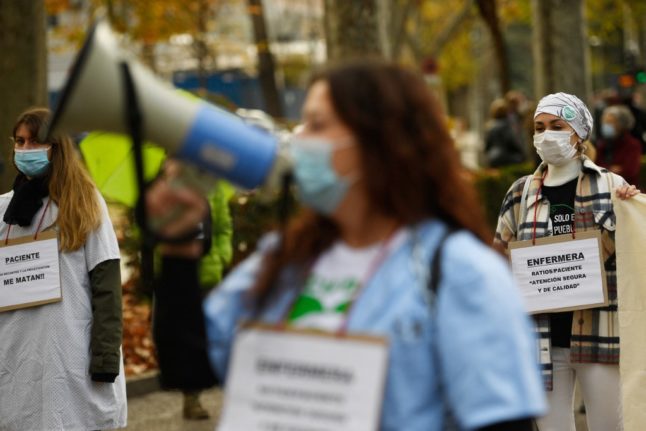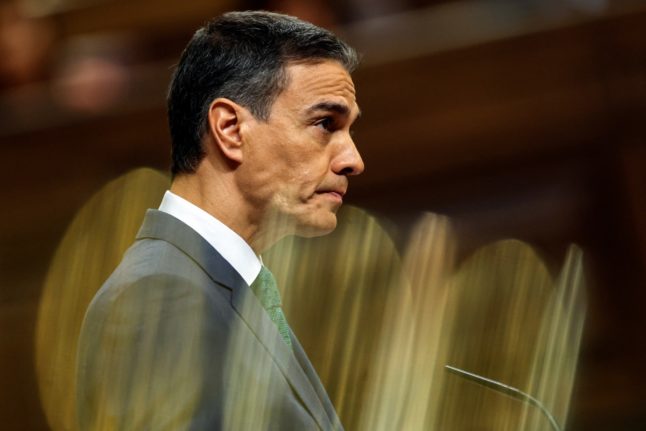Thousands of people demonstrated in several cities across Andalusia in defence of public health services on Saturday.
The main demonstration was held in Seville, the southern region’s capital, where police say 4,000 people took part. Organisers of the protest put the figure at 20,000.
Up to 400 protesters took to the streets in Cádiz, and around a thousand in Granada, though police claim there were just 200.
Protestors demanded the regularisation of 12,000 “false contracts” given to doctors in the Andalusian Health Service (SAS) who arrived as reinforcements during the pandemic, as well as face-to-face care within 48 hours of requesting an appointment, 12 minutes of care per patient, and the boosting of rural emergency and preventive community care.
READ ALSO: Why Spain is running out of doctors
A spokesman for the event, retired doctor Sebastián Martín, highlighted the support “as never seen before” and pointed out that there are around 2.5 million private health policies in Andalusia, adding that “it is important that civil society stands up to them.”
Adelante Andalucía representative Maribel Mora stressed that “we have to defend public health care whoever governs,” criticising “the deterioration of health care over many years” and adding that “now much more money is going to private health care.”
Toni Valero, spokesmen for the leftist grouping of parties IULV-CA called on the Andalusian president Juanma Moreno to “take note” of the “success” of the demonstration and that Andalusian society had clearly “had enough.”
The protests come just weeks after thousands took to the streets in Madrid in defence of the capital’s public healthcare services.
READ ALSO: Thousands rally in defence of Madrid public healthcare
In Granada, the PSOE health spokesperson in the Andalusian parliament, María Ángeles Prieto, stated that public healthcare “can no longer cope” and that was why thousands of Andalusians have taken to the streets. Prieto demanded the regional government invest in public health and asked Moreno to stop the steady privatisation process and stop “transferring” money from the public to the private sector “so that some people can do business.”
However, Regional Minister of Health Catalina García has denied that there is a “progressive deterioration” in Andalusian healthcare.
She stressed improvements in the last four years, including a supposed 30,000 more professionals in the health sector. “The Andalusian health system, according to objective data, is better than it was four years ago. That is undeniable,” she claimed in a statement.
According to the García, the lack of medical professionals in a national problem affecting health systems in all regions of Spain.
READ ALSO: What is the average waiting time across Spain to see a doctor?



 Please whitelist us to continue reading.
Please whitelist us to continue reading.
Member comments